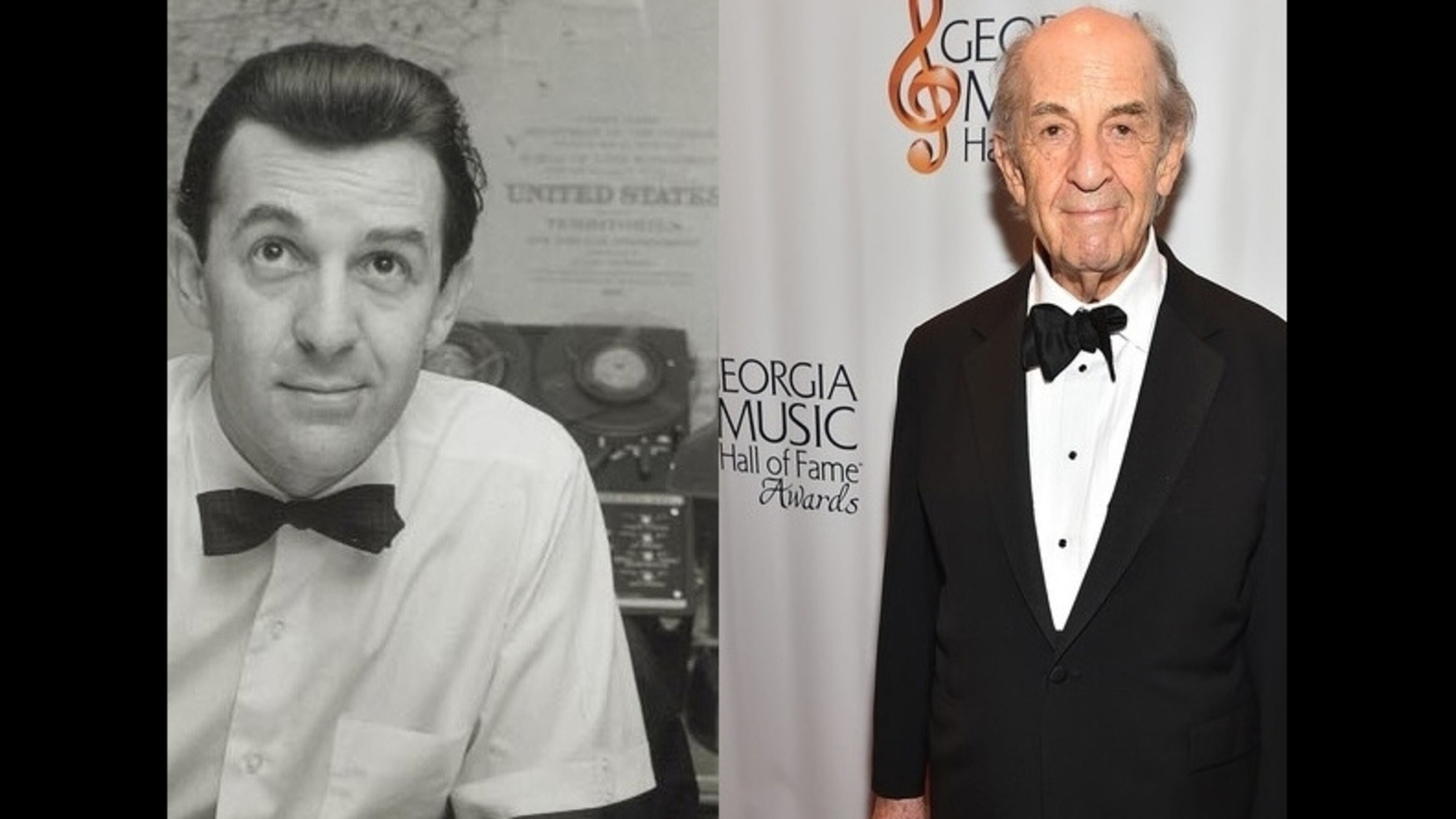John Barbe, Georgia Music Hall of Fame member, dies at 93

John Barbe believed that music isn’t a calling, it’s an affliction.
From New York’s Roseland Ballroom in 1952 to the Georgia Music Hall of Fame in 2015, music was a constant in Barbe’s life.
Whether playing clarinet or baritone saxophone in big bands – notably the Buddy Morrow Orchestra - that toured the country more than 300 nights per year (in cars, not luxe tour buses or even a van with a few inches of breathing room); writing arrangements for sessions with Joe South and Billy Joe Royal; or composing music for commercials and jingles (Coke, Delta, Kickapoo Joy Juice and James Brown’s Gold Platter restaurant were among the highlights), music pervaded his world.
On Dec. 20, Barbe died peacefully of natural causes at the age of 93.
A native of Scarsdale, New York, Barbe moved to Atlanta in 1962, a couple of years after meeting wife Jane when she joined the Buddy Morrow Orchestra as a singer (Jane passed away in 2003). He lived in Roswell until a few weeks ago, when he relocated to Athens to be with his son, David, a longtime musician, recording engineer and director of the Music Business Program at University of Georgia.
“I think being up here, he was comfortable about letting go,” David said.

While Barbe struggled with his health since a bout with pneumonia in 2017, which instigated pulmonary fibrosis, and was further weakened by a second hit of pneumonia last year, David is content that “he led a full life until he was 90.”
Barbe’s musician life began in 1942, when he’d play jazz gigs in New York while still in high school. Three years later, he was drafted and sent to the Philippines during World War II and upon leaving the service, utilized the G.I. Bill to attend Julliard.
His work with the Buddy Morrow Orchestra included playing baritone sax on their 1958 hit, “Night Train,” but once he and Jane relocated to her hometown of Atlanta, his interests turned to helping establish the music business in the city.
“I would imagine in 1962 that an honest-to-God, Julliard-trained, New York big band guy was a unique presence,” David said. “My mom, having grown up (in Atlanta), was probably already socially connected, but he was an unlikely addition.”
Along with a handful of other music business-minded people in the city, including DJ and record producer Bill Lowery and Mary Tallent, Barbe helped establish an Atlanta chapter of the Recording Academy.

“The initial move was that Nashville wanted to incorporate Atlanta into their chapter and the Atlanta group held their ground that there was enough (going on here musically) to justify their own presence and they didn’t want to be second fiddle to anybody,” David said, noting with a laugh that all of the original group purchased lifetime memberships for $100.
Barbe remained on the Recording Academy board for many years and served as a Grammy judge in the arrangement category. He was also on the Atlanta board of the American Federation of Musicians, another indication of his lifelong dedication to the industry.
At the 2015 Georgia Music Hall of Fame ceremony – in which David had the honor of inducting his father – Barbe was thrilled to be recognized by his peers in the state he called home for decades.

“That was a huge deal for him,” David said. “I don’t think he was waiting on it, but he was so honored and proud and had multiple copies of the DVD of the TV show (which aired on GPB).”
Having followed in the family business of playing music, David – whose resume includes playing in Sugar (with Bob Mould) and Mercyland, as well as producing nearly every album for Drive-By Truckers – said that he learned the value of practice from his dad.
“My dad was no fan of rock ‘n’ roll, but he was really proud of me making music. He was a very forward-thinking guy. He was really into science and technology. He told me a few years ago, “I might not like rock ‘n’ roll, but that fact is that your music lasted a lot longer than mine – meaning big band. There’s so many older people who would never make that observation,” David said. “He didn’t dwell in the past that much and was all about looking forward...He really led quite the life.”



